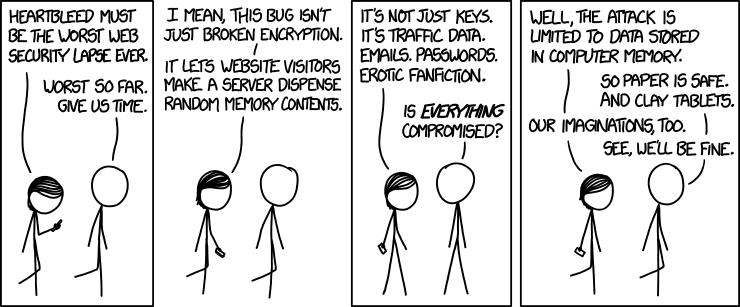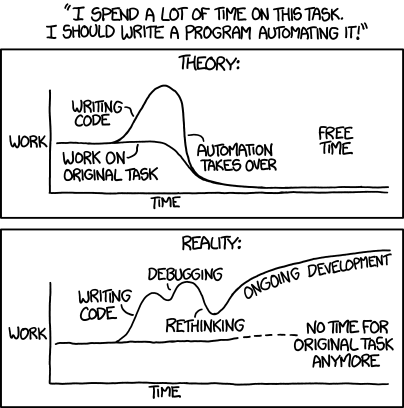Update: In case you’re not concerned about the seriousness of this issue, The Register‘s John Leyden would like you to think again.
The catastrophic crypto key password vulnerability in OpenSSL affects far more than web servers, with everything from routers to smartphones also affected.
The so-called “Heartbleed” vulnerability (CVE-2014-0160) can be exploited to extract information from the servers running vulnerable version of OpenSSL, and this includes email servers and Android smartphones as well as routers.
Hackers could potentially gain access to private encryption key before using this information to decipher the encrypted traffic to and from vulnerable websites.
Web sites including Yahoo!, Flickr and OpenSSL were among the many left vulnerable to the megabug that exposed encryption keys, passwords and other sensitive information.
Preliminary tests suggested 47 of the 1000 largest sites are vulnerable to Heartbleed and that’s only among the less than half that provide support for SSL or HTTPS at all. Many of the affected sites – including Yahoo! – have since patched the vulnerability. Even so, security experts – such as Graham Cluley – remain concerned.
OpenSSL is a widely used encryption library that is a key component of technology that enables secure (https) website connections.
The bug exists in the OpenSSL 1.0.1 source code and stems from coding flaws in a fairly new feature known as the TLS Heartbeat Extension. “TLS heartbeats are used as ‘keep alive’ packets so that the ends of an encrypted connection can agree to keep the session open even when they don’t have any official data to exchange,” explains security veteran Paul Ducklin in a post on Sophos’ Naked Security blog.
The Heartbleed vulnerability in the OpenSSL cryptographic library might be exploited to reveal contents of secured communication exchanges. The same flaw might also be used to lift SSL keys.
This means that sites could still be vulnerable to attacks after installing the patches in cases where a private key has been stolen. Sites therefore need to revoke exposed keys, reissue new keys, and invalidate all session keys and session cookies.
“Catastrophic” is the right word. On the scale of 1 to 10, this is an 11.
Half a million sites are vulnerable, including my own. Test your vulnerability here.
The bug has been patched. After you patch your systems, you have to get a new public/private key pair, update your SSL certificate, and then change every password that could potentially be affected.
At this point, the probability is close to one that every target has had its private keys extracted by multiple intelligence agencies. The real question is whether or not someone deliberately inserted this bug into OpenSSL, and has had two years of unfettered access to everything. My guess is accident, but I have no proof.






